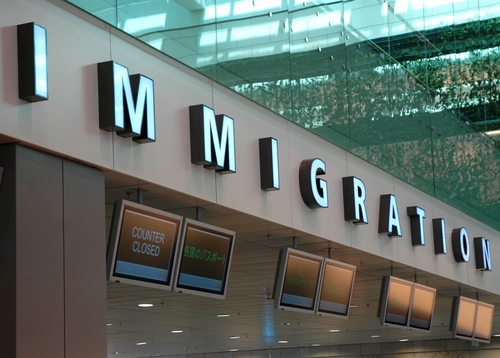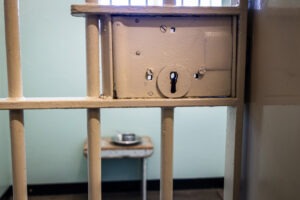
April 19, 2013; Washington Post
If you had been monitoring the social media about the manhunt for the two alleged Boston Marathon bombers, one of the truly disturbing elements was the rapid emergence of anti-immigrant and anti-Muslim sentiments. Without knowing the details of what truly motivated the brothers Tsarnaev, or what they hoped to demonstrate or achieve, there were people who have injected last week’s terrible incidents into the immigration debate.
It was truly disappointing to read a statement from Senator Charles Grassley (R-IA) using the bombing to suggest “it is important for us to understand the gaps and loopholes in our immigration system.” It was truly in character for right-wing pundit Ann Coulter to tweet, “It’s too bad Suspect Number One won’t be able to be legalized by Marco Rubio now,” apparently a reference to both the immigration compromise being promoted by Senator Rubio (R-FL) and to the younger Tsarnaev’s reported status as a naturalized American citizen.
Grassley added, “How can we beef up security checks on people who enter the United States? How do we ensure that people who wish to do us harm are ineligible for benefits under immigration laws, including this new bill before us.” If this is a veiled reference to the Tsarnaev brothers, it ignores the fact that they came to the U.S. a decade ago, when one was 15 and the other nine—hardly ready to be interrogated for their political beliefs.
Sign up for our free newsletters
Subscribe to NPQ's newsletters to have our top stories delivered directly to your inbox.
By signing up, you agree to our privacy policy and terms of use, and to receive messages from NPQ and our partners.
Nonetheless, immigration reform opponents have latched on to the Marathon bombings to call for a halt in consideration of immigration reform legislation. Rep. Steve King (R-IA), already adamantly opposed to immigration reform that would put undocumented immigrants on a path toward citizenship, called for a refocusing of Congressional attention on national security. Michael Hammond, the legislative counsel of Gun Owners of America, a gun-rights advocacy group, added, “People are going to look much more carefully at the extent to which we have let terrorists into this country and will let more terrorists into the country if this immigration bill is passed.”
In his statement after the capture and arrest of the younger Tsarnaev brother, President Obama showed immediately that he was aware of the likelihood of a surge of anti-immigrant feeling that might ensue, or already had, in the moments after the arrest:
“That American spirit includes staying true to the unity and diversity that makes us strong—like no other nation in the world… (W)e take care not to rush to judgment—not about the motivations of these individuals; certainly not about entire groups of people. After all, one of the things that makes America the greatest nation on Earth, but also, one of the things that makes Boston such a great city, is that we welcome people from all around the world—people of every faith, every ethnicity, from every corner of the globe. So as we continue to learn more about why and how this tragedy happened, let’s make sure that we sustain that spirit.”
Immigration reform advocates remember how the 9/11 terrorist attacks derailed the immigration reform plan proposed by President George W. Bush and supported by Senator John McCain (R-AZ). McCain remembers, too, and issued a public statement calling on Americans not to conflate the Boston bombing suspects with immigration reform.
One of the admirable successes of the nonprofit sector in recent years has been the mobilization of nonprofits in favor of immigration reform. Immigration reform nonprofits have had a major impact on the national dialogue, notwithstanding the unwillingness of politicians to move legislation during the past four years of the Obama Administration. Notwithstanding the origins and motivations of the Tsarnaev brothers, immigration reform should proceed apace, leaping over the obstructionist positions of Grassley, King, and Coulter.—Rick Cohen












